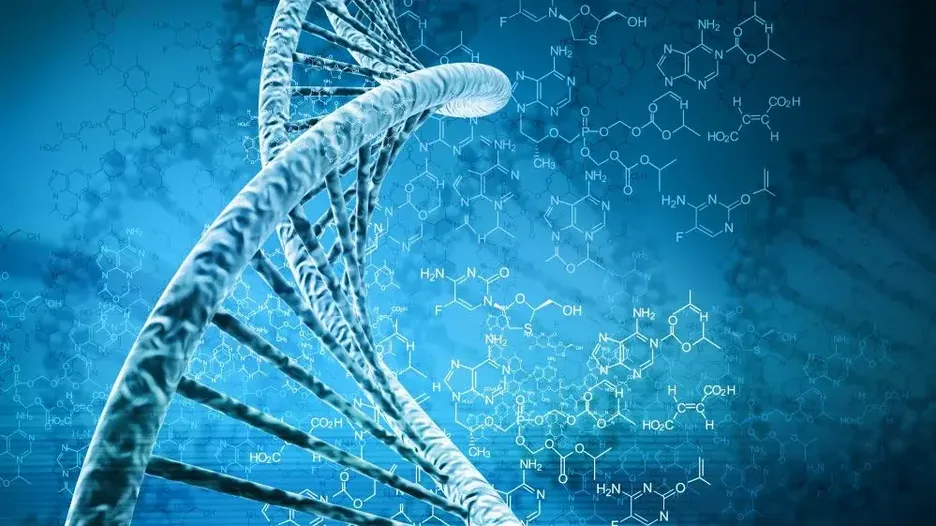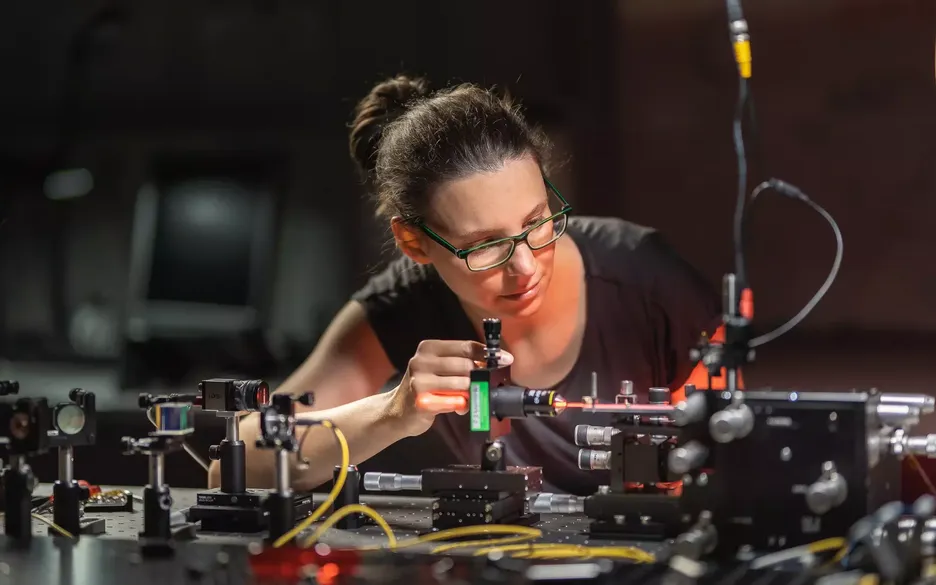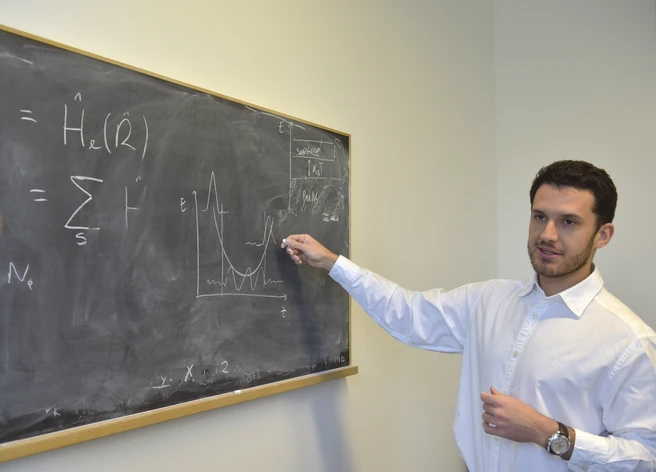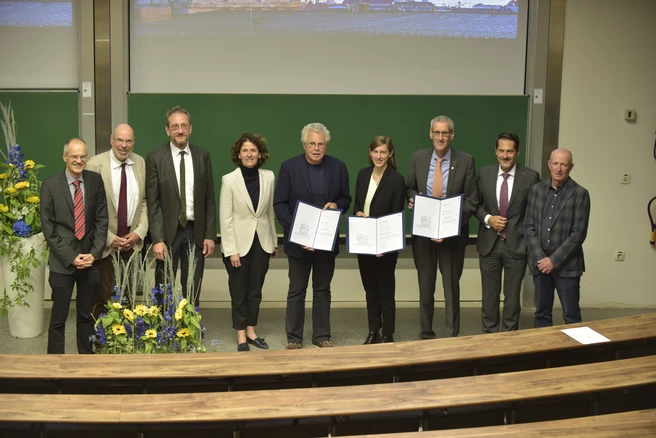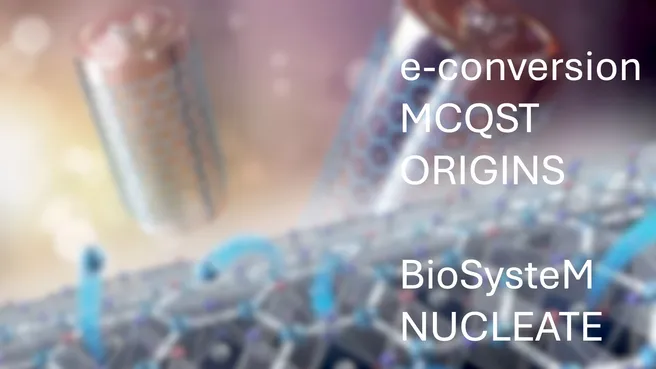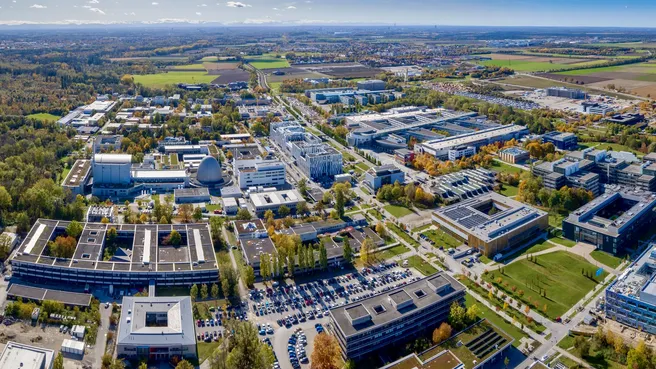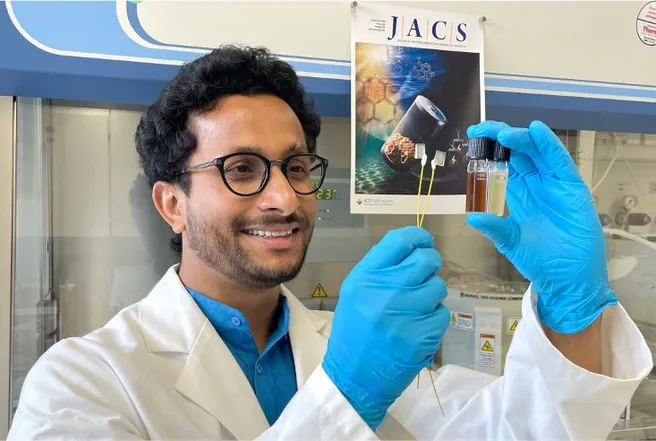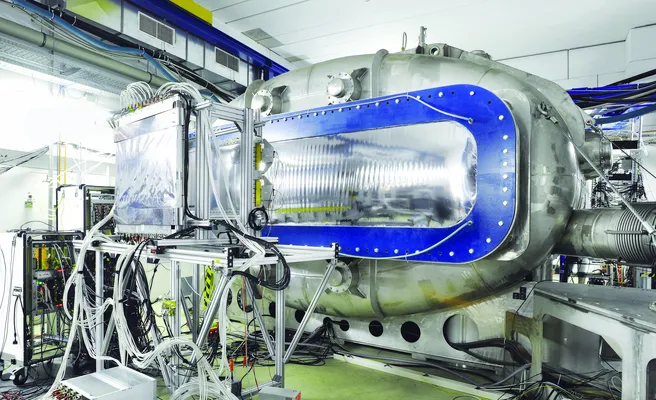Our Clusters of Excellence
Clusters of Excellence are innovative, world-class research projects funded under the national Excellence Initiative, which connects universities with leading German research institutes and businesses. The School of Natural Sciences contributes to five of these clusters.
e-conversion
The cluster “e-conversion” explores the underlying processes in the conversion of renewable energies, for example, in photovoltaics, photocatalysis, and batteries. Researchers are working to reduce energy losses occurring at the interfaces between different materials as a result of physical effects. These are crucial for the efficiency of energy conversion.
MCQST
MCQST is examining the scientific basis for complex quantum systems and establishing the technological foundation of quantum technology, a key next-generation technology for the 21st century. The researchers address significant fields of application ranging from quantum computers, powerful quantum information systems and quantum sensors to novel quantum materials.
ORIGINS
The cluster „ORIGINS“ is conducting research into the evolution of the universe from the Big Bang to the origin of life. Researchers from the fields of astrophysics, biophysics and particle physics collaborate, for example, in the search for the connection between the formation of planets and the origin of the first prebiotic molecules. Among other things, they are trying to show that life is a natural process that forms part of the evolution of the universe.
BioSysteM (Start January 2026)
The cluster “BioSysteM“ aims to create self-organizing molecular and cellular systems with programmable, life-like properties. The researchers develop biomolecular machines, intelligent materials and pattern-based therapeutics. As a basis for new medical applications, they are also researching the control of cell differentiation and organ formation.

NUCLEATE (Start January 2026)
The NUCLEATE research cluster investigates the fundamental biological functions of RNA and DNA molecules. The focus is on interdisciplinary approaches to better understand the roles of nucleic acids in organisms and how their activity can be specifically regulated. As a key technology for future medicine, the targeted modulation of nucleic acids will open up completely new possibilities for diagnosis and treatment.
